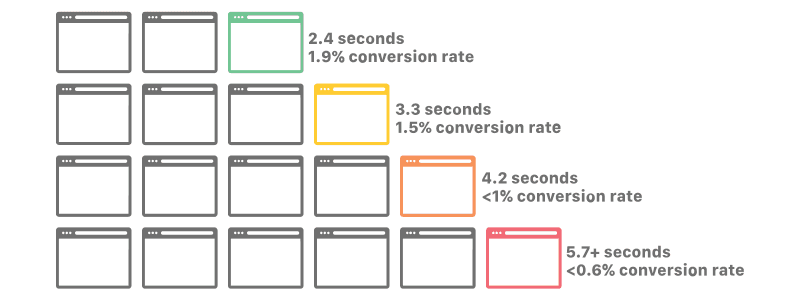Improving the booking journey with UX design
How you can use UX principles to grow your hotel bookings
Rodrigo Perez Garofalo
Aug 22, 2024
TABLE OF CONTENTS
Improving the customer journey with UX design
Your hotel is not only competing with other properties near you.
It’s competing with Airbnb, Booking, Kayak, and all of the OTAs.
These companies spend (literally) tens of millions of dollars to improve their user experience.
The good news is that you can take the principles of why they do what they do, and apply it in your website.
And that’s what UX design is.
Making the process for a person that wants to take an action, as easy as possible.
Frictionless, fast and easy.
The Role of UX in CRO
User Experience (UX) is about making your website a pleasure to use.
When done right, it can significantly boost your conversion rates.
UX and Conversion Rate are so closely related that it still surprises me every day.
Yet it’s such an overlooked piece in the industry.
We’ve seen it while working with Sandals Resorts, small tweaks can sometimes increase conversion by 20% or 30%.
Compound a few of them and the results are outstanding.
Best Practices for Hotel Website Design
Clean and Intuitive Design:
Use white space effectively
Create clear visual hierarchies
Make navigation simple and logical
Clear Calls-to-Action (CTAs):
Use contrasting colors for "Book Now" buttons
Place CTAs where they're easy to find
Use action-oriented language
Brand Alignment:
Ensure your website reflects your hotel's unique character
Use high-quality images that showcase your property
Maintain consistency in design across all pages
Mobile Optimization.
Over 50% of hotel bookings now happen on mobile devices.
You cannot allow yourself to lose guests because of a non-responsive website.
Focus on the following to ensure this doesn’t happen to you.
Responsive designs (adapts to any screen size)
Fast loading times (aim for under 3 seconds)
Easy-to-tap buttons and forms
Simplified booking process
Doing things on mobile tends to be more frustrating, so don’t contribute to that.
Every Second Counts
Website speed isn't just about convenience - it directly impacts your conversion rate.
A 1-second delay can reduce conversions by almost 80%
40% of users abandon a site that takes more than 3 seconds to load

This graph is not specific to the hospitality industry, but it still applies.
Putting UX to Work: A Step-by-Step Approach
Audit your current website (or use the Contact page to get a free audit from us)
Identify pain points using tools like heatmaps
Develop a plan to address these issues
Implement changes gradually, testing as you go
Monitor your KPIs to measure the impact
UX improvements should always be based on data and guest personas, not just gut feeling.
The ROI of Great UX
Investing in UX isn't just about looking good. It's about:
Increased bookings
Higher guest satisfaction
Lower bounce rates
Better brand perception
More loyal guests
A superior UX can be your differentiator online.
It can make or break your brand.
Learning from the best
Platforms like Booking.com, Airbnb, Expedia, and many more invest millions in their booking experience.
Exploring what they do and understanding why can inform your strategy.
Jakob's Law
Jakob's Law states that users prefer your site to work the same way as other sites they know. For hotels, this is crucial:
Guests browse many travel sites before yours
Familiar layouts make users feel at ease
The ease of navigation increases the likelihood of booking.
Key applications:
Use standard placements for search bars and navigation
Follow familiar booking process steps
Innovate in your offerings, not in basic website functionality
Airbnb
Airbnb's success isn't just about unique stays - it's about a smooth booking process.
Their website it’s simple yet powerful.
And you can book a property in less than 2 minutes.
Some characteristics that stand out are:
Quick and easy search functionality
Clear, high-quality property images
Prominent, always-visible call-to-action buttons
Streamlined checkout (as few as 4 clicks to book)
Outsite: Niche targeting
Outsite focuses on digital nomads, showing the power of niche targeting.
Their message is clear, and it’s evident that they understand their audience very well.
Some of the things that stand out from booking with them are:
Membership options for frequent travelers
A clear breakdown of costs
Progress bar during booking to show steps left
The Hoxton: Hotel Booking Done Right
The Hoxton demonstrates how high-end hotels can create a distinctive online experience.
They do that by eliminating instead of by adding.
Less is more.
They have a very simple website that includes:
Unique, brand-aligned design
Flexible check-in options are presented upfront
Minimum amount of information requested during booking
Key Lessons for Your Hotel Website
Reduce Friction: Make booking as easy as possible. Every extra step risks lowering your conversion rate.
Know Your Audience: Tailor your UX to your specific guests, as we discussed with personas.
Be Clear and Transparent: Show all costs upfront. Surprises at checkout can lead to abandoned bookings and higher exit rates.
Mobile Optimization is Crucial: Ensure your booking process works smoothly on all devices, as discussed in our mobile optimization section.
Brand Consistency: Your website should reflect your hotel's unique character, just like The Hoxton does.
By studying these industry leaders, we can see UX best practices in action. Implement these insights, and you'll be well on your way to boosting your conversion rates.
FAQs
Can improving UX impact my bottom line?
Absolutely. Our case study with Sandals shows how UX improvements led to a 112% increase in conversion rates.
Is it worth hiring a UX professional?
Depending on your structure it could, It all depends on your structure and goals. If you're unsure about it, you can contact us and we can guide your decision.
Should I copy exactly what these big platforms do?
Always tailor your approach to your unique brand and guest needs, however, try to learn lessons from their journeys and apply them to your website.
How can I compete with the UX of larger booking platforms?
By offering a similar experience, you won't be losing much in terms of user experience. However, your offer in your direct channel should be more enticing than on OTAs, either by offering free upgrades, meals, points, or whatever other bonus you can, depending on what your guests are looking for.
Is it worth investing in a custom booking engine?
My experience has been that with the generic booking engines, you often lose control and the ability to keep the experience congruent. However, for small or medium properties it might not make sense to invest in a custom booking engine. If you need help building a custom booking engine, we can help you.
JOIN OUR NEWSLETTER
Get strategies and insights on how to grow your hotel with technology
RELATED ARTICLES
Learn more from this same topics in our blog
How experiments can help you double your direct bookings
Testing small changes is the clearest path to more direct business
Rodrigo Perez Garofalo
Aug 30, 2024
Improving the booking journey with UX design
How you can use UX principles to grow your hotel bookings
Rodrigo Perez Garofalo
Aug 22, 2024
How knowing your guest can bring you more direct bookings
And why it's the key to delivering a great guest experience
Rodrigo Perez Garofalo
Aug 15, 2024
TALK WITH AN EXPERT ON HOSPITALITY TECH
Get all your doubts answered and a roadmap to achieve your goals




